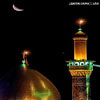The Message of Muharram

Call it an act of ignorance or obstinate attachment to the customs of the days of ignorance (Jahiliyya), the retaining of the practice of the pagan Arabs by the neo-Muslim rulers of Medina, to start the Islamic calendar on the 1st of Muharram, over two-and-a-half years after the passing away of Prophet Muhammad (SAWA), appears strange.
They had even conjured up dubious dates to date the Islamic calendar upon, but had to give in to the wise insistence of Imam Ali (AS) that the Islamic calendar should be based on the auspicious migration of the Seal of Prophets from his hometown Mecca to Medina, since this marks the turning point in the history of monotheism.
All narrators of hadith and chroniclers of history are unanimous that the Prophet migrated from his hometown Mecca to Medina on the 1st of Rabi al-Awwal. They also collectively state that Imam Ali (AS) risked his life and limb to sleep on the Prophet's bed that crucial night so that the latter could safely evade the plot of the pagans to murder him.
However, the decision of the rulers to opt for the Jahiliyya practice of basing the Islamic calendar year on the 1st of Muharram, defies all logic to this day, especially when we witness the sad spectacle of wild celebrations in some Muslim states on the beginning of the hijra year, which are a gross violation of the Islamic commandment of the sanctity of this month.
Muharram, which is derived from the root word Haram or sacred, is among the four months when all frivolities have been forbidden by Islam, let alone the indulging in capital sins on the pretext of ill-defined new year celebrations or the start of armed conflicts and shedding of innocent blood.
Thus, was Yazid the libertine, celebrating the start of the year 61 AH in a novel manner befitting his heathen ancestors, when he ordered the killing of the Prophet's grandson, Imam Husain (AS) in Muharram, on the conjecture that Islam and humanitarian values that had triumphed so spectacularly at Badr, Ohad, Khandaq, and Siffeen, would die a violent death in Karbala?
The answers are obvious. He was as wrong as his pagan and hypocrite sires. The intricate plot so badly backfired on the Omayyads that today there are no signs of their Arabian Nights palaces in their capital Damascus, while it is the chants of Ya Husain that resound in the Syrian capital, as well as all over the globe at the sighting of the crescent of Muharram, the month of mourning for history's most bloodcurdling tragedy.
Imam Husain (AS), who arrived in Karbala, the rendezvous of martyrdom, on the 2nd of Muharram, so completely changed history that Muslims and all those with a grain of conscience, are indebted to the annual discourses of his epic stand to sift truth from falsehood.
If not for the mourning ceremonies in the months of Muharram and Safar for the Chief of Martyrs and the sufferings of the Prophet's blessed household, the pure and pristine teachings of Islam as preached by Prophet Muhammad (SAWA) would have long been forgotten as was the fate of the missions of the previous prophets.
Thus, whenever one feels in himself/herself or in the society, virtue piety, patience, courage, magnanimity, the concept of justice, the refusal to yield to oppression, and all other positive characteristics, he/she should turn towards Karbala to salute the person who saved Islam.
